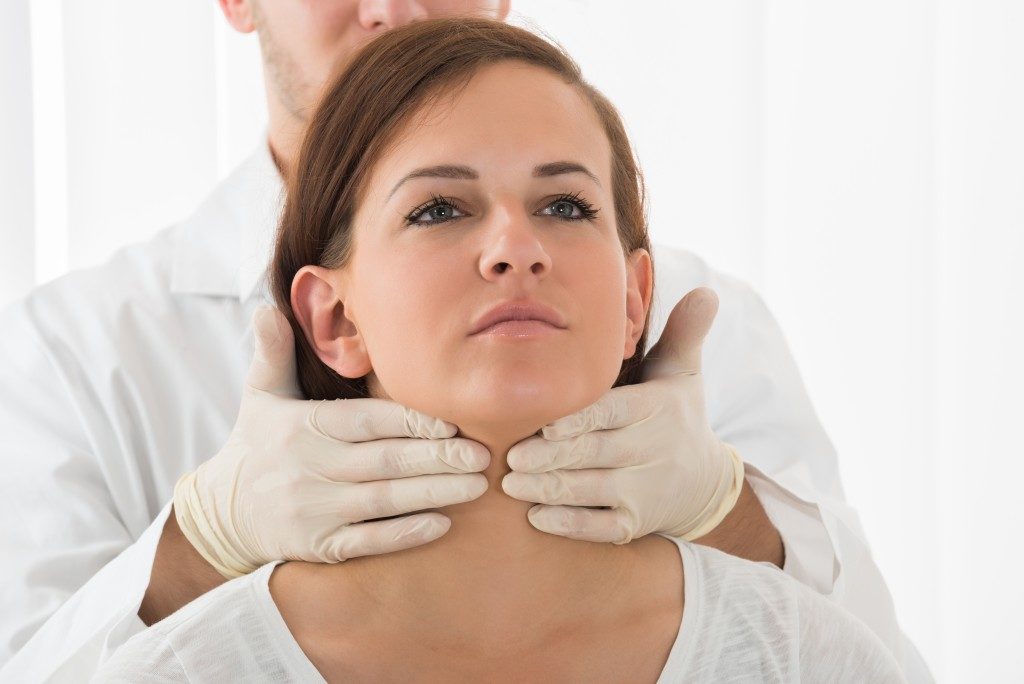The thyroid gland, a tiny and butterfly-shaped gland, is part of a complex network of glands called the endocrine system. This group of glands works by coordinating various activities of the body. For one, the thyroid gland is responsible for regulating metabolism, the process that produces and utilizes energy in the body.
Many diseases can affect the thyroid gland. Hashimoto’s thyroiditis is one of the most common causes of hypothyroidism. This disease is autoimmune, which means that the body’s immune system is attacking the cells of the thyroid gland, mistaking them for harmful antigens.
What Is Hypothyroidism?
Hypothyroidism is when the thyroid gland does not produce adequate amounts of thyroid hormones. As a result, the gland does not meet the needs of the body. These hormones work by regulating metabolism or the way the body uses up energy. Thyroxine—the hormone produced by the thyroid gland—may be low, inhibiting physical or mental development.
If you’ve recently been diagnosed with the condition, it’s important to know that treatment is safe, simple, and effective. Most treatments in Las Vegas focus on supplements to restore the body’s normal hormone levels.
Hypothyroidism Causes
Hypothyroidism may be due to a multitude of factors, such as autoimmune disease, exposure of the neck or upper chest to radiation, and excessive or inadequate iodine consumption. Women and the elderly are more at risk of the disorder. If you suffer from hypothyroidism, your body mistakenly attacks the healthy tissues of the thyroid gland. This impedes thyroxine production, leading to many symptoms.
What Are the Symptoms of Hypothyroidism?
Detecting thyroid symptoms is crucial to initiate early treatment. The signs and symptoms of hypothyroidism depend from one person to another. The severity of the condition also affects which signs and symptoms will appear. Nonetheless, these symptoms usually develop slowly over the years, and in some cases, can be mistaken for natural changes related to aging.
The common signs and symptoms include fatigue, weight gain, cold intolerance, depression, and dry skin. Other signs and symptoms include hair loss, heavy menstrual flow, sleep problems, memory loss, inability to focus, swelling of the joints, high cholesterol levels, irritability, frequent muscle aches or cramps, constipation, and brittle fingernails, among others.
Treating Hypothyroidism
 The goal of hypothyroidism treatment is to replace the hormones that are lacking for the body to work properly. One of the most common treatments is for the patient to take synthetic thyroxine. The patient will take the synthetic hormones to replenish hormone levels and restore the body’s normal functions. Monitoring the intake is important to make sure that the hormone levels are in the normal range.
The goal of hypothyroidism treatment is to replace the hormones that are lacking for the body to work properly. One of the most common treatments is for the patient to take synthetic thyroxine. The patient will take the synthetic hormones to replenish hormone levels and restore the body’s normal functions. Monitoring the intake is important to make sure that the hormone levels are in the normal range.
Another way to treat the condition is through iodine and nutrition. Iodine is an important mineral used by the thyroid gland. Keeping iodine levels at bay is important to reduce the risk of degeneration.
Hypothyroidism is a chronic disease. It is essential for you to know how it can affect your health and how to manage it. Lastly, seeking medical help from a doctor is recommended, especially if you experience any of the symptoms more often than usual.

